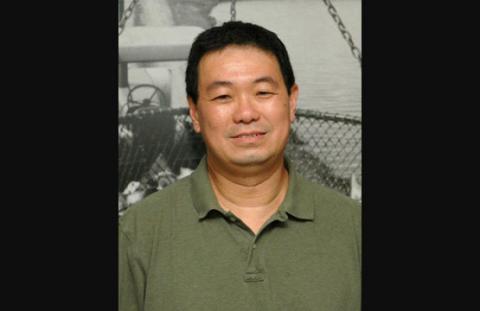

Mississippi State University, College of Veterinary Medicine
Aquatic veterinary medicine is a relatively nascent field with the possibilities of new discoveries and challenges.
Education
- B.Sc., Biological Science, University of Guelph, Ontario, Canada
- Ph.D., Aquatic Immunology, North Carolina State University
- V.M.D., University of Pennsylvania School of Veterinary Medicine
What is your current job and what does it entail?
I am a professor of aquatic animal medicine and director of the Aquatic Research & Diagnostic Laboratory (ARDL) at the Mississippi State University College of Veterinary Medicine in Stoneville, Mississippi. The ARDL is a full service, American Association of Veterinary Laboratory Diagnosticians (AAVLD) accredited laboratory that services the catfish industry, which is the largest aquaculture entity in the United States. My main responsibility is as a diagnostician and pathologist assisting catfish producers when they have problems on their farms. We provide water quality analysis, necropsy, microbiological and histopathological testing. There is also a research component to the position and I usually am responsible for histopathological assessments for various studies involving infectious and non-infectious diseases. Teaching is another important aspect of the position, mainly for veterinary students during their rotations and also for visiting veterinary interns who spend time at our laboratory to learn about the industry and aquatic animal medicine.
What was the key factor in your career decision?
The idea of being part of helping to feed the world was an important part of the decision to choose this career. Aquatic veterinary medicine is a relatively nascent field with the possibilities of new discoveries and challenges. It also allowed me to extend my veterinary education and veterinary anatomic pathology residency training beyond traditional animals to include aquatic species.
What do like most about your career?
Being able to make a difference by assisting producers (who take tremendous risks to produce a safe, wholesome product) has been the most rewarding aspect of this career. This, together with imparting knowledge to eager veterinary students/externs, has provided much satisfaction and gratification.
What do you like least about your career?
There are increasing amounts of regulations and paperwork that govern what we do as aquatic veterinarians and also how we need to perform in academia. This may get frustrating at times but is a necessary evil to ensure that we provide the best service and in a proper manner.
What do you do to relax?
I like to volunteer for Habitat for Humanity as it helps take my mind off work and helps me develop a skill set that I do not have. I also enjoy competing in local 5K races.
Who are your heroes/heroines?
There are several relatives and friends who I consider my heroes/heroines (I would be afraid to name them as I suspect I would inadvertently leave one out) as they have helped me formulate my life’s goals and to find fulfillment in doing so.
What advice would you give a student who expressed an interest in pursuing a career in your field?
I would suggest exploring the field by volunteering or doing externships to make sure that this is something that you would like to do. While it can be tremendously rewarding, it does have its challenges and there might be sacrifices that need to be made. Unfortunately, the cost of a veterinary education is steadily going up, but this is a rewarding and challenging field and it will need individuals who have the passion and drive to serve.
Are career opportunities in your field increasing or decreasing and why?
The worldwide career opportunities should be increasing as the worldwide aquaculture industry continues to grow to supply product as capture fisheries can no longer meet the demands. Fish are also used as animal models for human diseases and there will be a need for veterinarians who have aquatic experience. More and more people have fish as pets and these pet owners will also be seeking medical service and advice from veterinarians.
What will you be doing 10 years from today?
I suspect that I will be in the same field and do not anticipate changing fields in the next 10 years.
